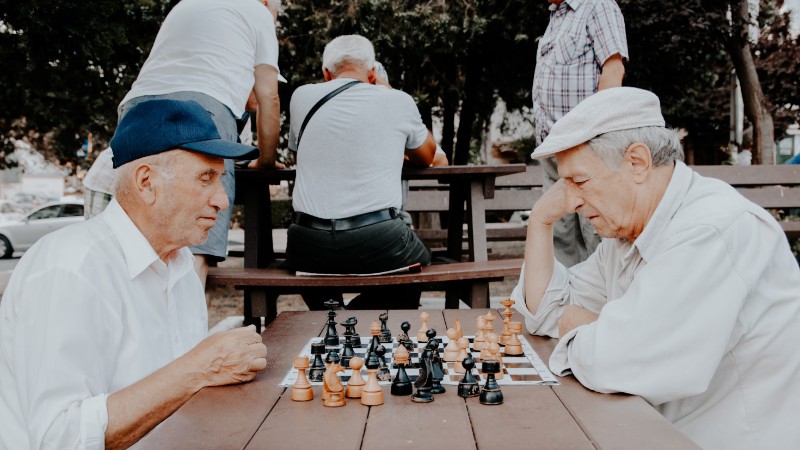Aging often leads to mental health challenges, including cognitive decline and emotional strain. Memory issues, anxiety, and depression become more common, with about 20% of seniors aged 55 and older experiencing mental health concerns, as reported by the CDC. Conditions like depression and bipolar disorder frequently affect older adults, highlighting the importance of mental health in senior care.
Strengthening mental health in aging adults
Aging often affects cognitive abilities such as memory, processing speed, and attention span. While a gradual decline is considered normal, a sudden or severe drop may indicate dementia, which is not a typical part of aging.
Mental health issues, like anxiety and depression, not only affect seniors emotionally but also contribute to physical health problems, including chronic illnesses. However, with the right strategies and care, cognitive decline can be slowed, and emotional well-being can be maintained.
Activity-driven health enhancement
Mind Stimulation Activities: The brain, much like the body, needs exercise to stay healthy. Regular mental stimulation can help delay cognitive decline and improve memory, problem-solving abilities, and decision-making. Engaging in brain-stimulating activities keeps seniors mentally sharp and contributes to overall well-being.
Reading and writing boost memory and reduce stress, enhancing mental clarity. Learning a new language exercises the brain and builds confidence. Playing an instrument stimulates the brain, benefiting seniors with Alzheimer’s or dementia. Puzzles and games like Sudoku, chess, and crosswords also provide enjoyable ways to keep the mind engaged and sharp.
Staying physically active: Physical activity is essential for both physical and mental health. Low-impact exercises like walking, swimming, or yoga improve fitness and help reduce anxiety, stress, and depression. Exercise releases endorphins, promoting happiness and a sense of accomplishment.
Regular activity can also lower the risk of cognitive decline, including dementia and Alzheimer’s disease. Always consult your healthcare provider before starting a new exercise routine to ensure it’s safe for you.
Social engagement and purposeful activities
Social Involvement: As people age, they often lose touch with friends, leading to isolation and increased risk of loneliness, depression, and cognitive decline. Staying connected with loved ones through visits, social media, or video calls is vital for emotional health.
Building new friendships and rekindling old ones helps combat loneliness, making social engagement crucial for maintaining mental and emotional well-being.
Volunteering and finding purpose: Volunteering gives seniors a sense of purpose, which is vital for mental well-being. Engaging in meaningful activities, such as reading to children or mentoring, keeps them mentally active and enhances emotional health by making them feel valued. Seek local volunteer opportunities that match your interests, as this can also foster new friendships and social connections.
Pick up a new hobby: Retirement offers seniors a chance to explore new or revisit old hobbies like gardening, painting, or cooking, which can enhance mental health. Engaging in interests stimulates the brain, fosters a sense of purpose, and boosts feelings of accomplishment and contentment. Such activities also strengthen neuronal connections, promoting better cognitive health.
Care for a pet: For those who manage it, caring for a pet can significantly enhance mental health by providing companionship and reducing loneliness. Interacting with animals has been shown to lower stress and anxiety levels, while pet ownership offers seniors a daily routine and a sense of responsibility. If adopting a pet isn’t possible, volunteering at an animal shelter can provide similar benefits without the long-term commitment.
Building resilience through reflection: Self-reflection and journaling are effective for enhancing emotional resilience. Writing about thoughts and feelings helps seniors process emotions and cultivate healthy coping strategies, improving self-awareness and mental health control. Starting a daily journaling habit can also serve as a therapeutic outlet for stress relief.
Taking control of senior mental health
By incorporating these practical strategies into daily life, seniors can take charge of their mental health and cognitive well-being. Staying socially connected, engaging in mentally stimulating activities, maintaining physical health, and practicing mindfulness are all essential steps toward preserving mental agility and emotional balance. Simple lifestyle changes can have a profound impact, helping seniors live fuller, happier lives well into their golden years.















